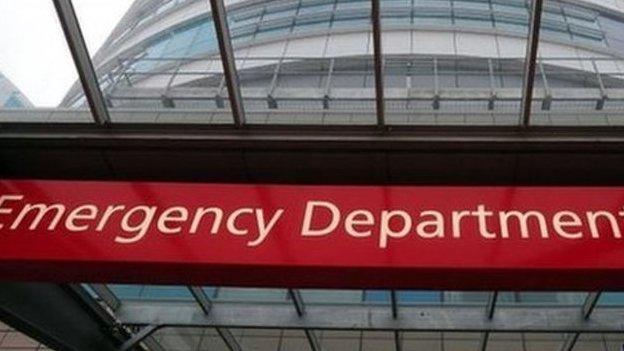'I broke every bone in my face - and survived'
- Published
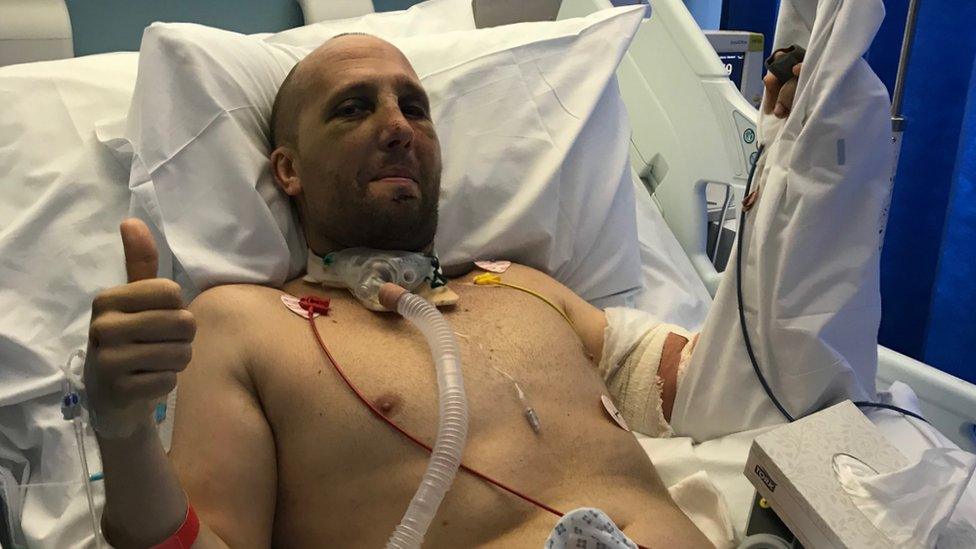
Tom Locke spent three weeks in hospital
NHS reorganisations are not very popular - but Tom Locke probably owes his life to one.
The 41-year-old was inspecting pigeon nests on his roof at home in Hythe on the Kent coast last October when disaster struck.
He fell from his ladder on his balcony plummeting three storeys on to his patio below, breaking his leg, arm, wrist, shoulder and every bone in his face.
But rather than being taken to a local hospital he was ferried by air ambulance to London's King's College Hospital more than 60 miles away.
According to doctors who treated him, the decision saved his life.
King's is the region's designated major trauma centre, which means there are specialists available around the clock to deal with life-threatening injuries.
Following a reorganisation in 2012, England now has 27 of these designated centres for victims of shootings, stabbings, road accidents and terror attacks.
The most seriously-injured will be taken straight to them even if there is a nearer hospital.
'The best chance of survival'
And a study by independent researchers and NHS England officials has suggested despite the longer journeys they are saving lives.
The chances of surviving major trauma have risen by a fifth since 2012 - and the researchers believe this means 1,600 extra people have been saved.
The study - in EClinicalMedicine, which is published by the Lancet, external - looked at 110,000 major trauma cases over the nine years, nearly half of all cases reported.
The team - led by experts at the University of Manchester - said patients were now more likely to be cared for by senior doctors and get quick access to scans and treatment to stop severe bleeding.
Chris Moran, the national clinical director for trauma at NHS England, said: "Getting you to the right hospital with all the facilities to look after you is your best chance of survival.
"That extra 20 or 30 minutes in the helicopter or back of an ambulance means that when you arrive there's a trauma team receiving you, operating theatre immediately available to save your life and the skills to put you back together again."
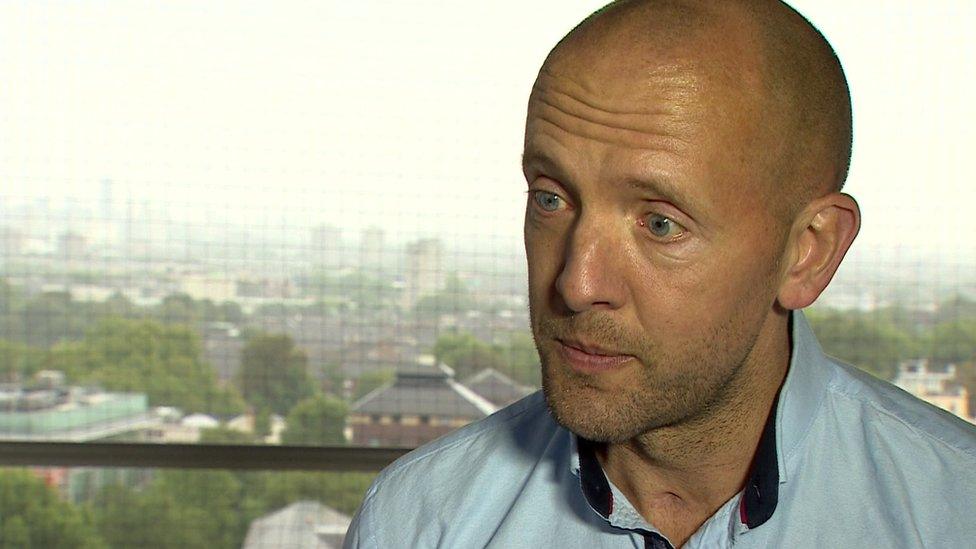
Mr Locke is now back playing squash, riding his bike and going to the gym
That was certainly the case for Mr Locke, who is now back playing squash, riding his bike and going to the gym.
He was unconscious for the first two days and then stayed in hospital for three weeks, undergoing a series of operations.
"It was daily visits, consultations, operations, scans, conversations to discuss all my range of injuries. I felt totally safe, secure and confident in everything that was being done to me," he said.
Rob Bentley, one of the surgeons who operated on him, said the fact he was treated at the specialist trauma centre for the region "undoubtedly" saved his life.
"Tom's injuries were very significant - they required specialist care in a major trauma centre that would not have been provided by a local hospital."
Dr Lisa Munro-Davies, of the Royal College of Emergency Medicine, said the findings of the study were "welcome news".
"Getting patients to the right care in a timely manner is crucial," she said.
- Published9 January 2017
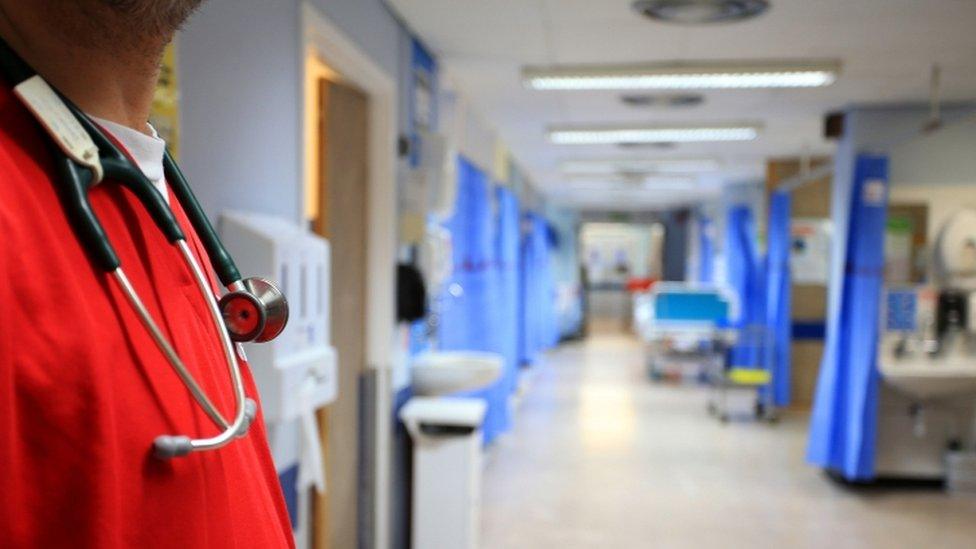
- Published7 January 2017
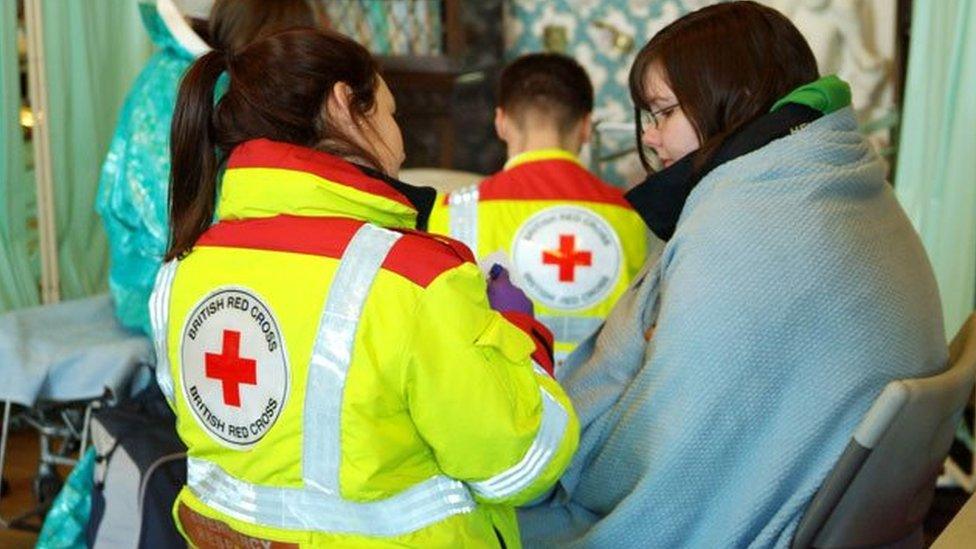
- Published9 June 2015
